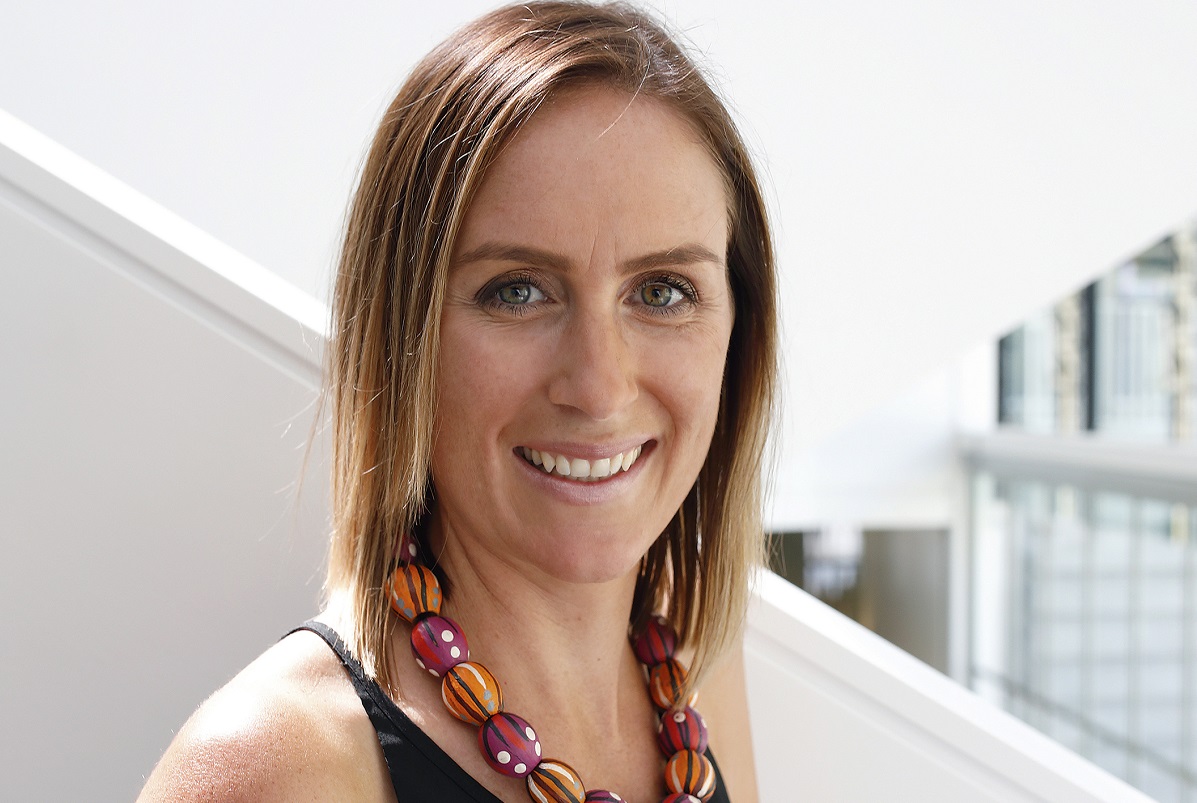
Dr Courtney Ryder is determined to change health outcomes for Aboriginal and Torres Strait Islander peoples, both through her own research, and by helping to shape fellow advocates for equitable health through her teaching.
What does your work involve at Flinders University?
I am a balanced academic, so I do teaching and research. I topic coordinate PHCA9501 Social Determinants of Health and PHCA9504 First Nations Health and Well-Being in the Masters of Public Health program.
Additionally, I am the Teaching Program Director in Public Health, where I oversee undergraduate courses such as the Bachelors of Public Health, through to postgraduate courses such as the Masters of Public Health. In this role I provide strategic leadership surrounding educational activities to assist in developing high-quality educational outcomes and also enhance the overall student experience.
The research that I undertake is focussed on understanding the nuanced ways in which health inequity manifestations impact on Aboriginal and Torres Strait Islander families. In this work I employ a weaving process for Knowledge Interface Methodology, which engages with Indigenous knowledges (knowing, being and doing), Indigenous research methods, public health knowledge and quantitative research methods.
My doctoral studies focussed on this work in Aboriginal and Torres Strait Islander children with burns injuries.
What inspired you to follow this career path?
There are multifactorial reasons of why I was inspired to follow this career path. As an Aboriginal child growing up in rural Australia, my own family’s lived experience certainly inspired me to undertake the work that I do. Additionally, changing the negative narrative and discourse which plagues Aboriginal and Torres Strait Islander health in Australia.
What has been a highlight of your work, or proudest moment?
Pressing the submit button for my thesis! Or maybe it was just sheer relief?! My methodology publication was a real proud moment for me, as so much of me and who I am as an Aboriginal researcher is part of that work. To see it published and referenced by other Aboriginal scholars is humbling.
In teaching, I think it is watching students grow and transform during the semester in First Nations Health and Wellbeing. It is heartening seeing the ‘light bulb’ moments occur, the transformation to advocate where you know these students in the future will want to move mountains.
Can you share a challenge and how you overcame it?
Imposter syndrome, that nagging feeling that you are never good enough to be here, that who you are or your self-worth does not count in the academy. I am not too sure if you ever overcome this.
Right from an early age I never ever thought university was a place for me, I was not ‘clever’ enough to be here. I remember a teacher in Year 12 reinforcing this as well! But here I am… I can be an incredibly stubborn person but have perseverance and patience to understand, learn and see things through. Perhaps these are just some of the right tools to keep on track and tackle the imposter syndrome.
How do you like to relax outside of work?
I am an active runner, training three times a week. I compete with the South Australian Athletic League in what is known as professional (handicapped) running in carnivals such as the Bay Sheffield, Camden Classic and Loxton Nippy’s Gift.
Handicap running allows competitors to start at different points across the field based on their fitness and skill, where the overall aim is to have everyone finish as close as possible. I guess you could say it is an equitable-based running competition where everyone is given a fair chance to win.
What does a normal day look like for you?
Define normal? I don’t think I ever have a ‘normal’ day!
Generally, my day starts early, I have little people to get off to school! Once in the office it could be anything from back-to-back meetings over a range of different things – pathways into higher degree research programs or public health programs for Aboriginal students, international marketing, course committee meetings, research meetings, student supervision meetings, or community meetings.
It could be a whole day of teaching, marking and providing feedback to students in the topics I coordinate. Or it could be collecting, analysing, interpreting data for the studies I am an investigator on. Perhaps a quieter day of reading and chapter-writing for a book that I am publishing with colleagues.
All in all however, there is certainly never a dull moment in my job that is for sure.

